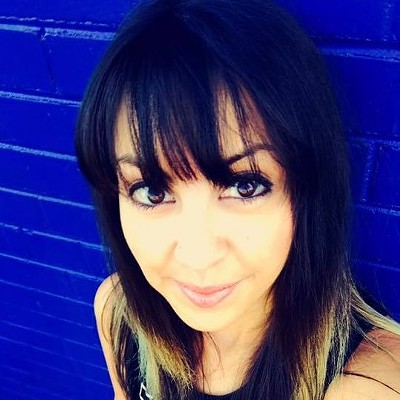“Let this be ambitious.”
This was the first thing that Cortney Stell, executive director and chief curator of Black Cube Nomadic Museum, said to ceramics artist Molly Berger. For artists like Berger and Eric Stewart — another Black Cube artist fellow whose work will show alongside that of Berger and Jennifer Ling Datchuk in the Gold Hill Art Project — the support of Black Cube is helping not only to launch their artistic careers, but also to challenge their thinking and their approach to their artwork.
“My Black Cube fellowship has really opened a door for me to tackle an ambitious, large-scale project that probably otherwise would’ve never left my sketchbook,” Berger says. “Without their support, working this way would have never been possible for an emerging artist like myself.”
Before beginning her Black Cube fellowship, Berger had just wrapped up a solo show at the Carbondale Clay Center. But soon Stell and curator-in-residence Laurie Britton Newell challenged her to create her first site-specific installation in Gold Hill, an old mining town outside Boulder.
“The installation brings into focus for me the questions that I’m always circling in the studio, like to what extent do the things that we hold on to have personal identity or a communal history,” Berger explains, adding that the Gold Hill Art Project centers largely on the town’s history and the geographic area. “I’m very interested in the roles that nostalgia and memory play in memory. But this project really pushed me as far as considering my role in the community for the first time.”
Berger thought it was really important to get to know Gold Hill and its residents, and she wanted to change her position "as an outsider.” She wanted to be recognizable in the community, she says, especially because she was interviewing residents for inspiration for her installation, something she’s never done before.
Stewart used his Black Cube installation to try something new, as well. Coming from a filmmaking background, he decided to step out from behind the camera and try his hand at the art of photogram, the process of creating an image without a camera.
“I work mainly as a filmmaker, and that means I exhibit my work in a certain context, typically in the theater,” Stewart says. “Black Cube has given me an opportunity to present my work in a totally different context, in different places and to different people than I normally would have. Working in moving image, I see 24 images per second. It’s wonderful to think I’ve worked with six over the last month.”
Stewart has spent the past several months collecting minerals and other small materials to demonstrate who and what makes up the “region” of Gold Hill. “I’ve put everything I’ve collected on a piece of film in the dark room and exposed the film that way, without using a camera at all,” Stewart says. “I’m printing them out very large and installing them in the same landscape from where they originated as coals. They’ll be leaning against trees, freestanding, in Gold Hill. It eliminates the architecture of a gallery, much like Black Cube in its mission.”
The Gold Hill Art Project opens this Saturday, August 6, with a free launch party beginning at 5 p.m. at 491 College Street in Gold Hill. The exhibition will run through September 5, with public hours on Saturdays and Sundays from 10 a.m. to 5 p.m. and guided tours beginning at 10:30 a.m. on Sundays; there will also be free Sunday events and workshops, including a pinhole-camera workshop taught by Stewart. Visit blackcubeart.org for a complete schedule.
[
{
"name": "Air - MediumRectangle - Inline Content - Mobile Display Size",
"component": "12017618",
"insertPoint": "2",
"requiredCountToDisplay": "2"
},{
"name": "Editor Picks",
"component": "17242653",
"insertPoint": "4",
"requiredCountToDisplay": "1"
},{
"name": "Inline Links",
"component": "18838239",
"insertPoint": "8th",
"startingPoint": 8,
"requiredCountToDisplay": "7",
"maxInsertions": 25
},{
"name": "Air - MediumRectangle - Combo - Inline Content",
"component": "17261320",
"insertPoint": "8th",
"startingPoint": 8,
"requiredCountToDisplay": "7",
"maxInsertions": 25
},{
"name": "Inline Links",
"component": "18838239",
"insertPoint": "8th",
"startingPoint": 12,
"requiredCountToDisplay": "11",
"maxInsertions": 25
},{
"name": "Air - Leaderboard Tower - Combo - Inline Content",
"component": "17261321",
"insertPoint": "8th",
"startingPoint": 12,
"requiredCountToDisplay": "11",
"maxInsertions": 25
}
]











